Justin Taylor's Blog, page 33
May 29, 2018
The Spiritual Danger of Crowds

Classically, there are three ways in which humans try to find transcendence—religious meaning, God meaning—apart from God as revealed in the cross of Jesus: through the ecstasy of alcohol and drugs, through the ecstasy of recreational sex, though the ecstasy of crowds.
Church leaders frequently warn against the drugs and the sex, but, at least in America, almost never against the crowds.
Probably because they get so much ego benefit from the crowds.
But a crowd destroys the spirit as thoroughly as excessive drink and depersonalized sex. It takes us out of ourselves, but not to God, only away from. The religious hunger is rooted in the unsatisfactory nature of the self. We hunger to escape the dullness, the boredom, the tiresomeness of me. We can escape upward or downward.
Drugs and depersonalized sex are a false transcendence downward.
A crowd is an exercise is false transcendence upward, which is why all crowds are spiritually pretty much the same, whether at football games, political rallies, or church. . . .
I really do feel that crowds are a worse danger, far worse, than drink or sex . . .
I think everybody should get rich and famous and do everything they ever dreamed of so they can see that it’s not the answer.
Why do I have three Super Bowl rings, and still think there’s something greater out there for me? I mean, maybe a lot of people would say, “Hey man, this is what is.” I reached my goal, my dream, my life. Me, I think: God, it’s gotta be more than this. I mean this can’t be what it’s all cracked up to be. I mean I’ve done it. I’m 27. And what else is there for me?
You know, I meet young people, and they want to act and they want to be famous, and I tell them, when you get to the top of the tree, there’s nothing up there. Most of this is nonsense, most of this is a lie.
May 1, 2018
David Powlison on 6 Books Every Pastor Would Benefit from Reading
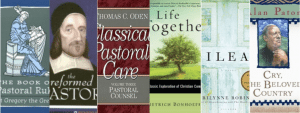
“The Pastor as Counselor” is one of my favorite essays by David Powlison, and in it he recommends six books every pastor should consider reading.

Every pastor will profit by reading Gregory the Great’s Pastoral Care, written almost 1,500 years ago. We may have better hermeneutics, wider doctrinal understanding, and more awareness of the richness of the gospel of Jesus. But Gregory has more awareness of “the Truth in person,” more case-wisdom, more flexibility in adapting to human differences, more sense of pastoral responsibility, more humility about his achievements, more alertness to the subtlety of sin. Stand on his shoulders.
Every pastor will profit from reading Richard Baxter’s The Reformed Pastor (and, if you are really ambitious, his Christian Directory).
Baxter is dense and, like all old writers, dated. You won’t do ministry in the same way he did. But if you sit with Baxter, you will become a wiser pastor.

Similarly, every pastor will profit from reading Thomas Oden’s Pastoral Counsel and Dietrich Bonhoeffer’s Life Together.
Oden’s digest of ancient wisdom will introduce you to wise pastors you never knew existed. Your church history class likely explored the development of doctrine and events in church politics. Oden explores how pastors pastored.
Bonhoefer’s 20th-century wisdom and example will inform and nerve you as you take up your unique counseling calling.
 Every pastor would also profit from carefully pondering Alan Paton’s Cry, the Beloved Country and Marilynne Robinson’s Gilead.
Every pastor would also profit from carefully pondering Alan Paton’s Cry, the Beloved Country and Marilynne Robinson’s Gilead.
Why fiction? It’s the same reason pastors in the 1700s read both their Bible and Shakespeare. Good fiction (along with history, film, and so forth) gives you vicarious experience of people. It builds your case wisdom far beyond the bounds of your own social setting.
I mention these two novels in particular because you will watch how Christian life and ministry work on the inside, amid the untidy details of life lived. In each book the protagonist is a pastor. Each struggles as an honest man with losses, regrets, fears, angers, sorrows. Each finds grace, and each gives grace.
You can read the whole thing here.
April 19, 2018
How God Used the Radical Gift of Ordinary Hospitality to Win Rosaria Butterfield to Christ

A beautiful introduction to Rosaria Butterfield’s new book, The Gospel Comes with a House Key: Practicing Radically Ordinary Hospitality in Our Post-Christian World (Crossway, 2018).
April 5, 2018
The Most Misunderstood Poem in American Culture

“I’ll bet not half a dozen people can tell who was hit and where he was hit by my Road Not Taken,” Robert Frost once wrote to his friend Louis Untermeyer.
David Orr, the poetry columnist for the New York Times Book Review, seeks to explain this in his book, The Road Not Taken: Finding America in the Poem Everyone Loves and Almost Everyone Gets Wrong (Penguin Press, 2015).
The famous poem, Orr argues, “is popular for what seem to be the wrong reasons.”
Most readers consider “The Road Not Taken” to be a paean to triumphant self-assertion (“I took the one less traveled by”), but the literal meaning of the poem’s own lines seems completely at odds with this interpretation.
The poem’s speaker tells us he “shall be telling,” at some point in the future, of how he took the road less traveled by, yet he has already admitted that the two paths “equally lay / In leaves” and “the passing there / Had worn them really about the same.” So the road he will later call less traveled is actually the road equally traveled. The two roads are interchangeable.
According to this reading, then, the speaker will be claiming “ages and ages hence” that his decision made “all the difference” only because this is the kind of claim we make when we want to comfort or blame ourselves by assuming that our current position is the product of our own choices (as opposed to what was chosen for us or allotted to us by chance).
The poem isn’t a salute to can-do individualism; it’s a commentary on the self-deception we practice when constructing the story of our own lives. “The Road Not Taken” may be, as the critic Frank Lentricchia memorably put it, “the best example in all of American poetry of a wolf in sheep’s clothing.” But we could go further: It may be the best example in all of American culture of a wolf in sheep’s clothing.
You can read a fuller excerpt of the book here.
March 31, 2018
The Final Week of Jesus: Sunday (April 5, AD 33)
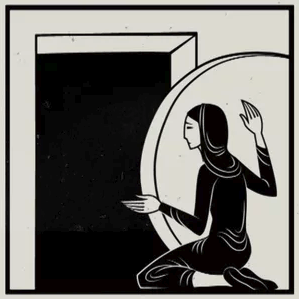
Each day this week I’ve post a video on what happened during the original Easter week of April, AD 33. The video above is the entry for Sunday.
He is risen!
For more information, including a day-by-day guide with the complete biblical text and commentary, you could pick up the Kindle version of The Final Days of Jesus: The Most Important Week of the Most Important Person Who Ever Lived by Andreas J. Köstenberger and Justin Taylor.
March 30, 2018
The Final Week of Jesus: Saturday (April 4, AD 33)
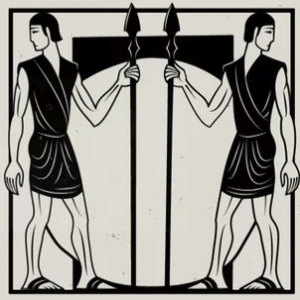
Each day this week I’ll post a video on what happened during the original Easter week of April, AD 33. The video above is the entry for Saturday.
For more information, including a day-by-day guide with the complete biblical text and commentary, you could pick up the Kindle version of The Final Days of Jesus: The Most Important Week of the Most Important Person Who Ever Lived by Andreas J. Köstenberger and Justin Taylor.
March 29, 2018
The Final Week of Jesus: Friday (April 3, AD 33)
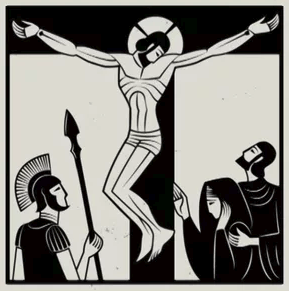
Each day this week I’ll post a video on what happened during the original Easter week of April, AD 33. The video above is the entry for Friday.
For more information, including a day-by-day guide with the complete biblical text and commentary, you could pick up the Kindle version of The Final Days of Jesus: The Most Important Week of the Most Important Person Who Ever Lived by Andreas J. Köstenberger and Justin Taylor.
March 28, 2018
The Final Week of Jesus: Thursday (April 2, AD 33)
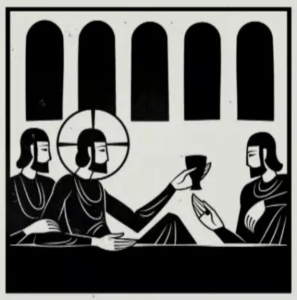
Each day this week I’ll post a video on what happened during the original Easter week of April, AD 33. The video above is the entry for Thursday.
For more information, including a day-by-day guide with the complete biblical text and commentary, you could pick up the Kindle version of The Final Days of Jesus: The Most Important Week of the Most Important Person Who Ever Lived by Andreas J. Köstenberger and Justin Taylor.
March 27, 2018
The Final Week of Jesus: Wednesday (April 1, AD 33)
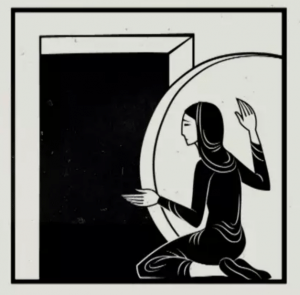
Each day this week I’ll post a video on what happened during the original Easter week of April, AD 33. The video above is the entry for Wednesday.
For more information, including a day-by-day guide with the complete biblical text and commentary, you could pick up the Kindle version of The Final Days of Jesus: The Most Important Week of the Most Important Person Who Ever Lived by Andreas J. Köstenberger and Justin Taylor.
“An enlightening and edifying look at the most important week in history. Both those who want to know more about the history and those who long to behold the wonder will find much to love about this great work. One gets the sense that we should proceed through these pages on our knees.”
—J. D. Greear, Pastor, The Summit Church, Raleigh-Durham, North Carolina; author, Not God Enough and Stop Asking Jesus Into Your Heart
“You may be wondering what can be done to make Christ’s last week come alive in ways it hasn’t before. It would help to understand the historical background and cultural script a little better, but you don’t want a big book. It would help, too, if your authors were trustworthy, knowledgeable evangelical scholars who could write clearly for laypeople. Look no further—this is the book for you!”
—Craig L. Blomberg, Distinguished Professor of New Testament, Denver Seminary
“Whether you’re a Christian seeking to defend your faith, an inquirer wanting to know what really happened with Jesus, or a disciple who wants to know the Lord more fully, The Final Days of Jesus will instruct and encourage you. It lays out the truth with coherence and conviction. I will point people to this book because it so clearly and faithfully explains what happened in the final days of Jesus. Here is the truth, based on the Gospel accounts. Here is the center of the Christian story, filled with insight and inspiration.”
—Mark D. Roberts, Executive Director of Digital Media and the Theological and Cultural Steward, Foundations for Laity Renewal; author, Can We Trust the Gospels?
“This is an immensely helpful guide to the last week of Jesus’s life—historically, theologically, and devotionally. Historically, it provides a likely chronology of Passion Week, chock full of historical, cultural, and geographical insights. Theologically, the authors provide the text of the four Gospels with helpful commentary, noting the theological contributions of each evangelist. Devotionally, the reader has the privilege of walking with Jesus through the most important week of human history—the climax of God’s redemptive plan. A feast of insights for both mind and heart.”
—Mark L. Strauss, professor of New Testament, Bethel Seminary
“Jesus’s last week shook but also saved the world. From Palm Sunday to Easter morning, each day and encounter were critical. This book leads the reader step by step along Jesus’s route from triumphal entry to the cross and finally to glory. Numerous maps and diagrams shed fresh light on each Gospel’s claims. We are reminded not only of what Christ did but also where his way points us now. An excellent beginning-to-intermediate guide!”
—Robert W. Yarbrough, professor of New Testament, Covenant Theological Seminary
“Holy Week is arguably the most sacred time of year for Christians. Andreas Köstenberger and Justin Taylor provide a simple yet eloquent survey of the final week of Jesus’s life. They take readers on a pilgrimage through the Gospels and invite us to follow Jesus in his triumphal entry into Jerusalem, on to the dark and tragic moments of Golgotha, and through to the glorious and unspeakable joy at the feet of the risen Jesus. In short, this is a wonderful resource for individuals, families, and fellowships to learn more about the Easter story, the greatest story ever told.”
—Michael F. Bird, Lecturer in Theology, Ridley College, Melbourne, Australia; author, Evangelical Theology
“A clearly presented overview of the most important week in world history. Brief, helpful comments illuminate the biblical story and bring home its enduring and life-changing message.”
—Douglas J. Moo, Kenneth T. Wessner Chair of Biblical Studies, Wheaton College; Chair, Committee on Bible Translation for the NIV
“The Final Days of Jesus helps believers take note of the historical events leading up to Jesus’s death on the cross. Readers are challenged to see the provocation that Jesus’s message and life represented, leading to his arrest and execution. The book demonstrates that historical facts and Christian worship can and should go hand in hand.”
—Eckhard J. Schnabel, Mary F. Rockefeller Distinguished Professor of New Testament Studies, Gordon-Conwell Theological Seminary; author, Paul the Missionary
“The center point of history is the death and resurrection of Jesus Christ, the Son of God. Thus The Final Days of Jesus is an incredibly important work, for it enables us to see the full impact of the social and religious tension that lay behind Jesus’s death as well as the theological implications for us. This book is both well researched and well written and is must-reading for students of the Word and indeed for all who wish to understand more fully the God-led events that resulted in the cross.”
—Grant Osborne, Professor of New Testament, Trinity Evangelical Divinity School
“Ninety-eight percent of the students entering a particular Christian college last year claimed to be Christians. Yet twenty-five percent did not know that Christianity affirms that Jesus literally rose from the dead! What better way to rediscover this truth than to walk alongside the Savior during his final days and moments? Köstenberger and Taylor guide us on our pilgrimage, and they are outstanding guides. More than anything else, they remind us that Jesus final days are not really the end.”
—Charles L. Quarles, Professor of New Testament and Biblical Theology, Southeastern Baptist Theological Seminary
March 26, 2018
The Final Week of Jesus: Tuesday (March 31, AD 33)
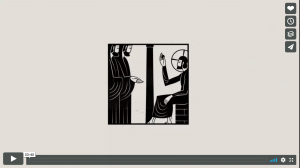
Each day this week I’ll post a video on what happened during the original Easter week of April, AD 33. The video above is the entry for Tuesday.
For more information, including a day-by-day guide with the complete biblical text and commentary, you could pick up the Kindle version of The Final Days of Jesus: The Most Important Week of the Most Important Person Who Ever Lived by Andreas J. Köstenberger and Justin Taylor.
“An enlightening and edifying look at the most important week in history. Both those who want to know more about the history and those who long to behold the wonder will find much to love about this great work. One gets the sense that we should proceed through these pages on our knees.”
—J. D. Greear, Pastor, The Summit Church, Raleigh-Durham, North Carolina; author, Not God Enough and Stop Asking Jesus Into Your Heart
“You may be wondering what can be done to make Christ’s last week come alive in ways it hasn’t before. It would help to understand the historical background and cultural script a little better, but you don’t want a big book. It would help, too, if your authors were trustworthy, knowledgeable evangelical scholars who could write clearly for laypeople. Look no further—this is the book for you!”
—Craig L. Blomberg, Distinguished Professor of New Testament, Denver Seminary
“Whether you’re a Christian seeking to defend your faith, an inquirer wanting to know what really happened with Jesus, or a disciple who wants to know the Lord more fully, The Final Days of Jesus will instruct and encourage you. It lays out the truth with coherence and conviction. I will point people to this book because it so clearly and faithfully explains what happened in the final days of Jesus. Here is the truth, based on the Gospel accounts. Here is the center of the Christian story, filled with insight and inspiration.”
—Mark D. Roberts, Executive Director of Digital Media and the Theological and Cultural Steward, Foundations for Laity Renewal; author, Can We Trust the Gospels?
“This is an immensely helpful guide to the last week of Jesus’s life—historically, theologically, and devotionally. Historically, it provides a likely chronology of Passion Week, chock full of historical, cultural, and geographical insights. Theologically, the authors provide the text of the four Gospels with helpful commentary, noting the theological contributions of each evangelist. Devotionally, the reader has the privilege of walking with Jesus through the most important week of human history—the climax of God’s redemptive plan. A feast of insights for both mind and heart.”
—Mark L. Strauss, professor of New Testament, Bethel Seminary
“Jesus’s last week shook but also saved the world. From Palm Sunday to Easter morning, each day and encounter were critical. This book leads the reader step by step along Jesus’s route from triumphal entry to the cross and finally to glory. Numerous maps and diagrams shed fresh light on each Gospel’s claims. We are reminded not only of what Christ did but also where his way points us now. An excellent beginning-to-intermediate guide!”
—Robert W. Yarbrough, professor of New Testament, Covenant Theological Seminary
“Holy Week is arguably the most sacred time of year for Christians. Andreas Köstenberger and Justin Taylor provide a simple yet eloquent survey of the final week of Jesus’s life. They take readers on a pilgrimage through the Gospels and invite us to follow Jesus in his triumphal entry into Jerusalem, on to the dark and tragic moments of Golgotha, and through to the glorious and unspeakable joy at the feet of the risen Jesus. In short, this is a wonderful resource for individuals, families, and fellowships to learn more about the Easter story, the greatest story ever told.”
—Michael F. Bird, Lecturer in Theology, Ridley College, Melbourne, Australia; author, Evangelical Theology
“A clearly presented overview of the most important week in world history. Brief, helpful comments illuminate the biblical story and bring home its enduring and life-changing message.”
—Douglas J. Moo, Kenneth T. Wessner Chair of Biblical Studies, Wheaton College; Chair, Committee on Bible Translation for the NIV
“The Final Days of Jesus helps believers take note of the historical events leading up to Jesus’s death on the cross. Readers are challenged to see the provocation that Jesus’s message and life represented, leading to his arrest and execution. The book demonstrates that historical facts and Christian worship can and should go hand in hand.”
—Eckhard J. Schnabel, Mary F. Rockefeller Distinguished Professor of New Testament Studies, Gordon-Conwell Theological Seminary; author, Paul the Missionary
“The center point of history is the death and resurrection of Jesus Christ, the Son of God. Thus The Final Days of Jesus is an incredibly important work, for it enables us to see the full impact of the social and religious tension that lay behind Jesus’s death as well as the theological implications for us. This book is both well researched and well written and is must-reading for students of the Word and indeed for all who wish to understand more fully the God-led events that resulted in the cross.”
—Grant Osborne, Professor of New Testament, Trinity Evangelical Divinity School
“Ninety-eight percent of the students entering a particular Christian college last year claimed to be Christians. Yet twenty-five percent did not know that Christianity affirms that Jesus literally rose from the dead! What better way to rediscover this truth than to walk alongside the Savior during his final days and moments? Köstenberger and Taylor guide us on our pilgrimage, and they are outstanding guides. More than anything else, they remind us that Jesus final days are not really the end.”
—Charles L. Quarles, Professor of New Testament and Biblical Theology, Southeastern Baptist Theological Seminary
Justin Taylor's Blog
- Justin Taylor's profile
- 44 followers



